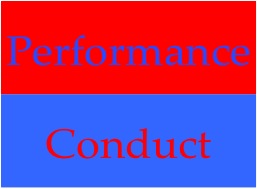So What Does it Take to Be a Great Manager?
Last week I referenced a Gallup report that found only 10% of managers have what it takes to be a great manager. Why? In a nutshell, many selection processes put too much emphasis on the wrong things. So what should we be evaluating, what does it take to be a great manager?
According to the research report, great managers possess an uncommon blend of five capabilities:
1) They build trusting relationships
2) They create a culture of accountability
3) They make unbiased decisions for the good of their team and company
4) They assert themselves to overcome obstacles
5) They motivate their employees
What stands out for me? Relationships and accountability are not mutually exclusive. Unbiased decisions means they aren’t self-serving. And they don’t quit when faced with obstacles.
When selecting for a management position, evaluating these five capabilities should be part of your process. Instead of just good you’re more likely to end up with great.
Your thoughts?
Michael












